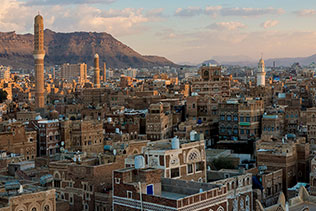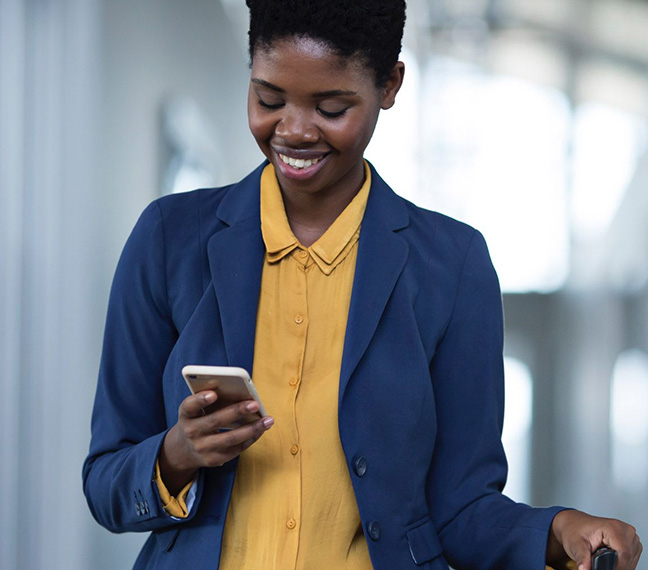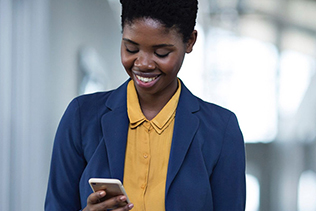Learning on a deadline
How Saudi Arabia ensured every child's education continued through the Covid-19 pandemic


When the pandemic first spread across the globe, life as we knew it paused. One of the most critical areas interrupted was education. As schools and universities closed to keep their students - and teachers - safe, the potential consequences of a lost year of learning loomed on the horizon.

For Saudi Arabia's Ministry of Education (MOE), missing even a single day of school wasn't acceptable. But how do you maintain any sense of educational continuity amid a global health crisis?
The response of the MOE to keep schools running immediately following the schools' closure was possible because of certain factors among which are Saudi Arabia's previous investments in e-learning, significant accumulated experience in education technologies, strong leadership and quick decision-making, and well-coordinated effort across multiple entities.
Distance learning
By the time Covid-19 came, the MOE already had an extensive library of electronic learning materials, such as pre-recorded video lessons, housed on its National Education Portal (iEN). These could be broadcast on the national iEN television and YouTube channels and accessed on the Web portal.
And the MOE's Future Gate initiative was already trialing three Learning Management Systems (LMS) for more interactive schooling. But these had limited functionality and were only capable of hosting up to 20,000 concurrent users - a long way from the kingdom's entire six million students.
With school closures set to last indefinitely, the MOE knew it needed an e-learning platform capable of recreating every aspect of the classroom experience, scaled to include every single student in the kingdom. Anything less would compromise the quality of education.
Scaling up
The MOE had a pre-existing partnership with Microsoft, making the tech giant a logical first port of call. MOE and Microsoft immediately set to work, migrating the kingdom's digital education assets to its flexible, secure Azure cloud servers for reliable connectivity across the country.
The partnership then created a comprehensive e-learning solution by integrating Microsoft products with the Madrasati platform which was developed by Saudi nationals to help teachers plan their lessons. Madrasati consists of a learning management system, e-content aligned with objectives, and assignments or exams from the test bank. Teachers could set and receive homework and give feedback by using Office 365 and teaching synchronous life lessons with Microsoft Teams.

But most importantly, Madrasati enabled synchronous learning. Extensive scheduling and calendars put students and teachers back on a school routine. Virtual classrooms were hosted in Microsoft Teams. E-exams could be taken simultaneously. There were even virtual laboratories simulating real-world science experiments.
Remarkably, having had just three weeks to ready the system for the first day of school, every student was able to attend without missing a minute - a stunning result for which Microsoft and the MOE technical staff all worked round the clock to achieve.
No child left behind
Meanwhile, every student and their parents had to be made aware of the new e-learning platform. A widespread 'Back to School' campaign mobilized national television, social media, and YouTube to point people to a 'Back to School' website, onboarding brochures, and video tutorials on how to use the system.
Initial projections were for 70-80% participation. But two weeks into the school year, Madrasati logins were reporting 98% of the student population using the system - testament to the success of the awareness campaign.
Even so, the Saudi government was determined not to leave a single child behind, sending devices to thousands of children who otherwise would not have been able to log in to Madrasati. The Ministry of Education was also keen to provide other educational alternatives, such as students' visits to schools and 23 Ein satellite channels in addition to three special education channels to provide lessons and instruction for students with Intellectual Disabilities and with autism spectrum disorders to ensure that education reaches all students in the Kingdom of Saudi Arabia.
Blended learning
Saudi children have returned to the 'real' classroom now. But the lessons of the past year are not being abandoned. The MOE and Microsoft are now working on a 'blended learning' approach that takes the best of e-learning and combines it with traditional schooling.
If the successes of the past year are anything to go by, this partnership may well be crafting a future model of education.
Learn more












































